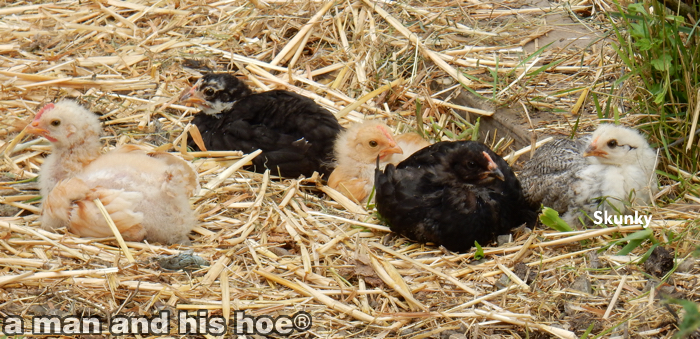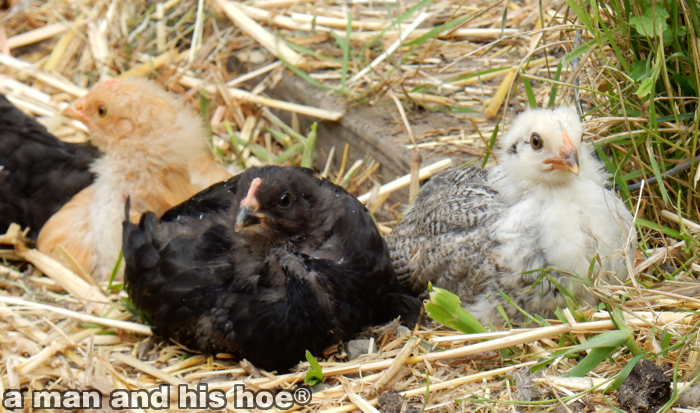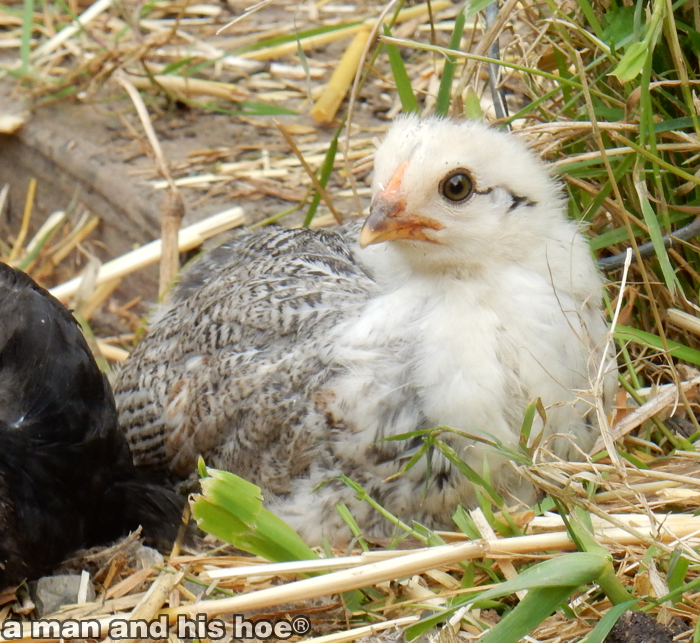
Skunky and its siblings are just over a month old now … and see, no mother. They’ve found a soft spot on a garden path and are enjoying the afternoon sun, not worried that their mother is off foraging on her own. They are old enough now to be on their own. A month is on the short side of chick rearing. More of the hens raise their chicks closer to two months than just one, but a month is not unusual. I’ll see if their mother is still spending the night with them. Chicks are completely independent when they no longer spend the nights with their mother.



Leave a Reply
You must be logged in to post a comment.